Police Deputy Fired After Being Filmed Dancing in Elevator
A police deputy in Colorado was fired after he was filmed dancing and singing in an elevator without knowing that a secret camera was there. The video of the deputy, Tony Scherb, went viral and sparked a debate about the ethics of secretly filming people without their knowledge.

Scherb was filmed dancing to the song “Watch Me (Whip/Nae Nae)” by Silento. He was also lip-synching the lyrics and appeared to be enjoying himself. However, he was unaware that a secret camera was installed in the elevator.
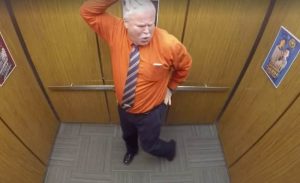
The video of Scherb dancing was posted on social media and quickly went viral. Scherb’s employer, the El Paso County Sheriff’s Office, launched an investigation into the incident. Scherb was eventually fired for “unbecoming conduct.”

The firing of Scherb sparked a debate about the ethics of secretly filming people without their knowledge. Some people argued that Scherb’s behavior was unprofessional and that he deserved to be fired. Others argued that Scherb was just trying to let off some steam after a long day at work and that he should not have been fired.
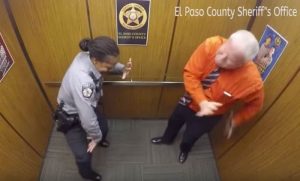
The incident also raised questions about the legality of secretly filming people without their knowledge. In Colorado, it is legal to record someone in a public place without their consent. However, it is illegal to record someone in a private place without their consent. The elevator where Scherb was filmed was a private place, so it is possible that the filming of Scherb was illegal.
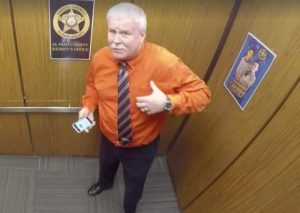
The firing of Scherb is a reminder of the importance of privacy and the potential consequences of being caught on camera without your knowledge. It is also a reminder that the legality of secretly filming someone can vary depending on the location and the circumstances.
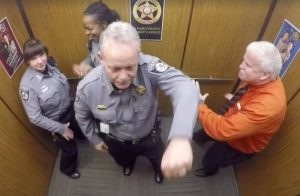
Some people argue that Scherb’s behavior was unprofessional and that he deserved to be fired. They point out that he was a police officer, and that his behavior could be seen as setting a bad example for the public. They also argue that Scherb’s behavior was disrespectful to the people who might have seen the video, and that it could have damaged the reputation of the El Paso County Sheriff’s Office.
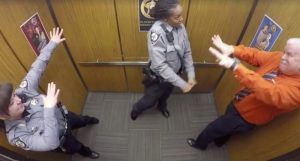
On the other hand, some people argue that Scherb was just trying to let off some steam after a long day at work, and that he should not have been fired. They point out that he was not harming anyone, and that he was not doing anything illegal. They also argue that the secret camera was a violation of Scherb’s privacy, and that he should not have been punished for something that he did in private.
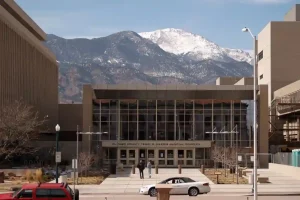
In Colorado, it is legal to record someone in a public place without their consent. Colorado is a one-party consent state, which means that only one party to a conversation needs to be aware of the recording in order for it to be legal. This means that you can legally record someone in a public place, even if they do not know that they are being recorded.
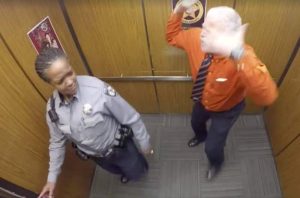
In addition to the legal and ethical considerations, there are also social and psychological implications to consider when it comes to secretly filming people without their knowledge. For example, some people might feel anxious or paranoid if they know that they could be being filmed without their knowledge. Others might feel violated or exploited if they find out that they have been filmed without their consent.
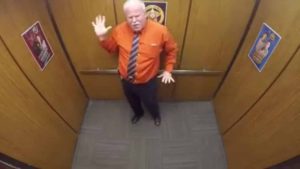
Ultimately, the decision of whether or not to secretly film someone without their knowledge is a complex one. There are many factors to consider, including the legality, ethics, and social and psychological implications. There is no easy answer, and each case must be considered on its own merits.
The Future of Privacy

The case of Tony Scherb is just one example of the many ways in which our privacy is being eroded in the digital age. As technology continues to advance, it becomes easier and easier to track, record, and share information about ourselves. This raises serious concerns about the future of privacy.
Some people believe that privacy is an outdated concept that is no longer relevant in the digital age. They argue that we live in a world where everything is connected, and that it is impossible to maintain complete privacy. Others believe that privacy is still an important right, and that we need to find ways to protect our personal information in the digital age.
The future of privacy is uncertain. However, it is clear that we need to have a serious conversation about this issue. We need to decide what kind of society we want to live in, and how much privacy we are willing to give up in order to enjoy the benefits of technology.
Conclusion
The case of Tony Scherb is a complex one, and there are no easy answers. However, it is a reminder of the importance of privacy and the potential consequences of being caught on camera without your knowledge. It is also a reminder that the legality of secretly filming someone can vary depending on the location and the circumstances. As technology continues to advance, it is important to have a serious conversation about the future of privacy. We need to decide what kind of society we want to live in, and how much privacy we are willing to give up in order to enjoy the benefits of technology.



